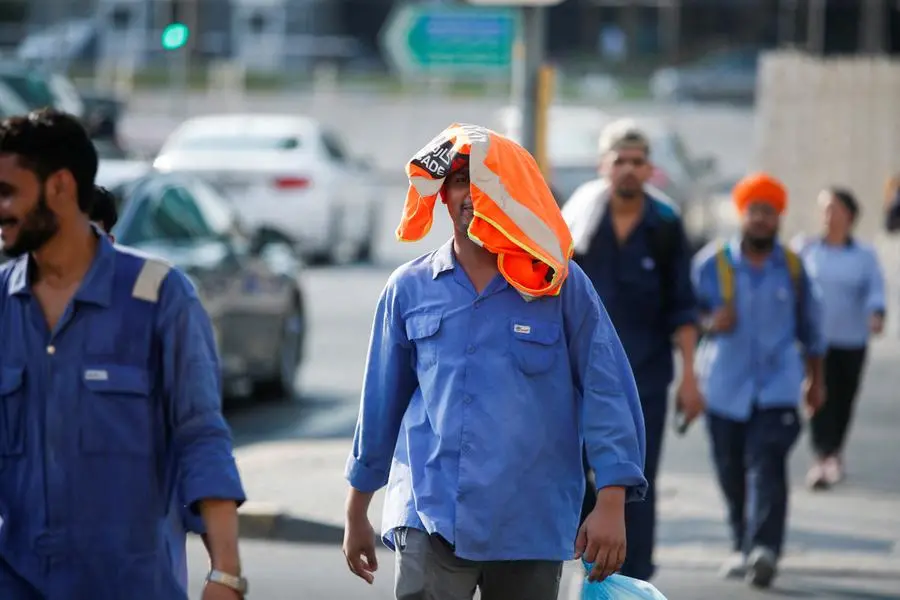PHOTO
Bahrain and the surrounding countries in the Arabian Peninsula are set to experience a heatwave, with temperatures approaching 50C, by the end of this week.
The Arabia Weather Centre has issued an alert, based on computer simulations, that the northern hemisphere will see changes in the distribution of weather systems, leading to surging temperatures in Europe and the Middle East.
“Large parts of the Arabian Peninsula will witness a rise in temperatures by the end of this week, as a result of the intensification of the high air pressure in the upper layers of the atmosphere and the deepening of the temperature depressions in the eastern front of a hot air mass rushing from the African desert to various parts of Europe,” researchers added.
“This will lead to temperatures in the 40s in most Gulf countries and Iraq, and reaching 50C in parts of southeastern Iraq, Kuwait, eastern Saudi Arabia and Bahrain.”
Meteorologists noted that these countries are anticipated to once again top the list of the highest recorded temperatures globally by the end of the week.
According to the Bahrain’s Meteorological Directorate, temperatures are forecast to climb to a high of 47C by Friday, while hovering around highs of 44C to 45C everyday during next week.
Fernando Toledo wipes his face with a cold towel during a period of excessive heat in Calexico, California this week. About 36 million people — roughly 10 per cent of the US — are under excessive heat warnings coming from the heat dome centred over California
According to the Bahrain Centre for Strategic, International, and Energy Studies (Derasat), extreme heat events like this can have a detrimental impact on human health and coping with them will require lifestyle changes and public awareness.
“Extreme heatwaves and record temperatures have become a key characteristic of this decade, and they are simply a manifestation of climate change, with increasing frequency and intensity,” Derasat climate change and sustainability analyst Sabeka Ismael added.
“In an arid and water-stressed region such as the GCC, such high temperatures further strain ecosystems and result in droughts, which threaten both food and water security.
“It also results in higher energy consumption, which further exacerbates the problem by increasing greenhouse gas emissions. “We have clearly seen the impacts of extreme heat on human health across the globe this summer, and its devastating effects push us to reconsider our lifestyle choices.
“Civic engagement and public behaviour are a key element of mitigating the effects of climate change. This can include simple acts such as turning off appliances that are not in usage, walking or carpooling instead of driving and limiting water wastage.”
Meanwhile, unionists and community groups have been coming together across the kingdom to support outdoor workers who are the worst hit during extreme heat events.
To cope with this, every year since 2007, the Labour Ministry has enforced a two-month ban, from July 1 to August 31, on labourers being made to work in the sun between midday and 4pm.
A hotline at 32265727 was recently launched to report violations of the annual summer midday outdoor work ban.
Copyright 2022 Al Hilal Publishing and Marketing Group Provided by SyndiGate Media Inc. (Syndigate.info).





















